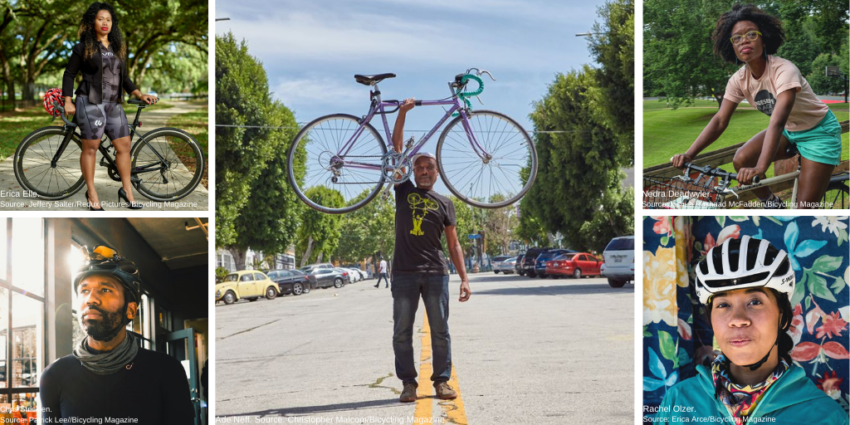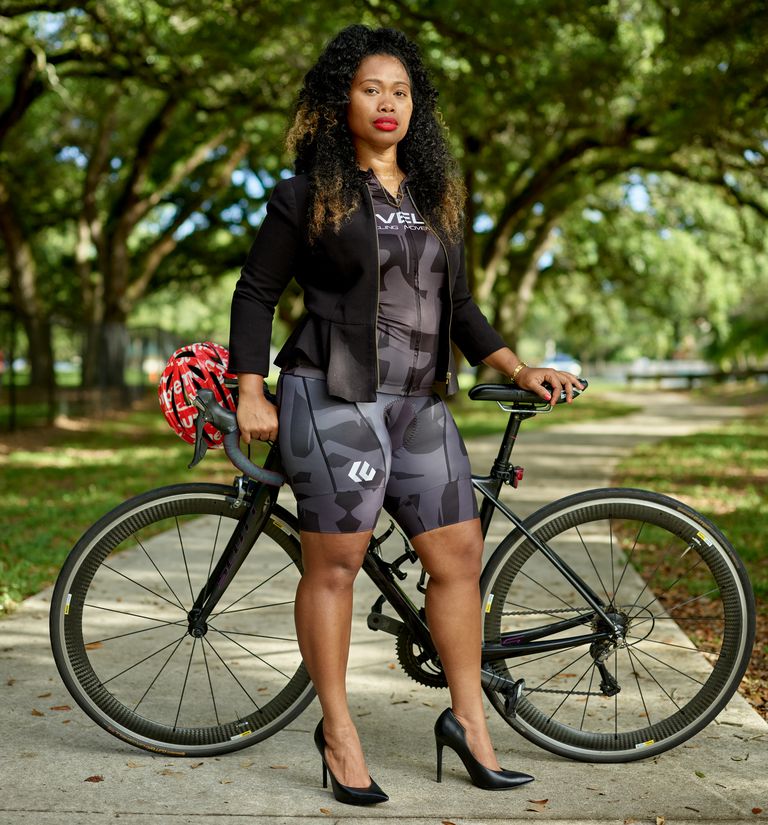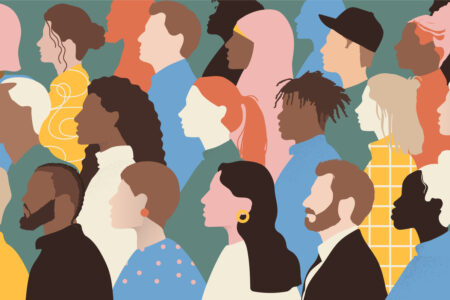
Share On Social!
Harmful biases impact the world of bicycling—professional, recreational, doctor-advised, and as a mode of transportation.
That’s why we feel it’s essential to promote the stories of 14 riders who shared with Bicycling Magazine about their experiences being Black in the cycling world.
These stories, which demonstrate the systemic barriers facing Black riders, are inspiring to many bicycle riders of color, including Latinos, who also deal with physical and silent barriers when it comes to public space.
“With the rise of bicycling during this global health pandemic, this is the moment to educate the casual beach cruisers, fully-kitted weekend warriors, the urban planning students who can’t wait to ride back to campus—all of us—on the systemic oppression of Black people, Indigenous people, and all People of Color,” wrote Tamika Butler in her story about cycling.
1. Why We Must Talk About Race When We Talk About Bikes
Tamika Butler doesn’t shy away from talking about race, gender, queerness, equity, and white supremacy when talking about bicycling.
She views bikes as a social justice tool.
“People of Color know that racism and racial bias in policing and infrastructure planning is a major factor in our safety and in our ability to succeed as we move about our communities,” Butler wrote in her story about bicycling.
Butler spent many years as a civil rights lawyer and social justice nonprofit leader.
Now, she is the executive director at the Los Angeles County Bicycle Coalition (LACBC).
In her story, she reveals how challenging it is to fight against systemic racism and encourage bicycle enthusiasts and advocates to acknowledge and change it explicitly.
“Any conversation about bicycling that fails to explicitly and affirmatively acknowledge this disparity is one that lacks true vision, honesty, and effectiveness,” Butler wrote. “Those in power must change, relinquish some of their power, and get out of the way to make room for those who are ready to lead and are equipped to identify anti-black practices and policies.”
2. At Group Rides, I was Treated Like I Didn’t Exist
Erica Elle struggled to find a group of people to bicycle with.
She wanted to ride in a group because she felt safer than riding alone.
She understood that riding in a group increased her chances of returning safely home to her toddlers, to her job as an executive financial professional, and to her church.
However, after joining multiple group rides, where she was neither acknowledged nor welcomed, she was frustrated.
“How could something so innocent as riding a bicycle make another human being fee discarded?” Elle wrote in her story about bicycling.

So, in 2018, she started the Level Up Cycling Movement, a nonprofit organization dedicated to:
- introducing the health benefits of cycling to minority communities
- promoting and fundraising for benevolent causes
- creating a consistent pathway to the highest levels of professional cycling
“Level Up was created to fill some of the major gaps necessary to begin building a place where people of color can have community, organize to address issues plaguing our community as well as build an infrastructure where the next generation can partake in cycle as an organized sport from amateur to professional,” Elle wrote.
3. Ask Yourself, Who Gets Left Behind in Cycling
Keith Benjamin says that transportation decisions are made without considering the people who experience transportation.
For example, Black citizens in Charleston, South Carolina make up 22% of the population but represent over 40% of bike and pedestrian deaths and injuries.
“Our hospitality industry is the backbone of our downtown, but only 20% of these workers live downtown, so many are relegated to disconnected alternative modes of transportation just to get to work on time,” Benjamin wrote in his story about cycling.
As director of the Department of Traffic and Transportation for Charleston, Benjamin wants to make sure these people aren’t left behind in transportation planning and decision-making.
This requires a shift in thinking, according to Benjamin — from questioning what barriers are in the way of this project, what do we need to do to persuade decision-makers, who benefits from change, who is part of the process, and who gets left behind.
“If you are sticking to cycling, you have signed up to graduate from equity being sprinkled in at the end of a project process to it being a priority in how we build accessible communities—especially for those who have been traditionally marginalized,” Benjamin wrote.
4. Bikes Don’t Discriminate, But Cyclists Do
Grace Anderson loves riding long distances.
But that requires a lot of planning because getting lost in the wrong places can have serious consequences. It doesn’t help when other people pretend not to see her skin color.
“Honestly, I need you to see my skin color because my experience as a Black cyclist greatly differs from non-Black cyclists, and I need you to know and see that,” Anderson wrote in her story about bicycling.
To achieve justice, Anderson promotes systemic change, action, and community as a co-director of the PGM One Summit, a grassroots organization fighting for environmental justice and collective liberation.
“One thing I love most about Black folks is that we won’t stop fighting for justice and taking up space in places we know we belong, and that includes cycling,” she wrote.
After all, cycling is more than recreation.
“It’s a means of transportation, resistance against climate change, and a tool for joy,” Anderson wrote.
5. If You Love Cycling, You Need to Talk About Race
Monica Garrison, 41, is a writer, photographer, and founder of Black Girls Do Bike.
6. What it Means to Never See Black People Out Riding
Rachel Olzer, 28, biology Ph.D. candidate and cofounding of Pedal 2 the People, a collection of stories Black, indigenous, and people of color who ride.
7. There is a Tremendous Untold Story of Black People on Bikes
Nedra Deadwyler, 44, is the founder of Civil Bikes, which leads historical bike tours of Atlanta.
8. Nelson Vails: Black Lives Matter Opened My Eyes
Nelson Vails, 59, is a 1984 Olympic silver medalist and the first African American to medal in cycling.
9. The More I Won, the Bigger the Barriers I Faced
Sean Hopkins, 32, a product development quality engineer at SRAM.
10. I Love Being a Black Cyclist, But It’s Exhausting
Ayesha McGowan, 33, is a professional cyclist for Liv Racing and advocate for representation of people of color in the bike industry.
11. I Got Stopped on Bike Rides Because I ‘Fit’ a Description
Adé Neff, 55, is the founder of Ride On! Bike Shop/Co-Op in Los Angeles.
12. Racism Should be Treated Like Doping
Kévin Reza, 32, is a pro cyclist for B&B Hotels-Vital Concept.
13. I Dream of a Day I can ‘Just Stick to Cycling’
Warren Logan, 31, is the Director of Mobility for the Oakland, CA, Mayor’s Office.
14. If You Want to Know What It’s Like to be Black For a Day, Be a Cyclist
Christopher Stricklen, 34, is a luxury retail sales specialist and photography hobbyist.
Stories Improve Compassion and Inspire Action
We can’t fix systemic racism and improve health equity without talking about bikes.
Stories are a critical tool to provide privileged individuals insight into the lives of those who are not and to build social cohesion.
Read and share the stories from these 14 riders. Maybe consider writing a story of your own and sharing it with us.
You can also urge local leaders to adopt a resolution, which declares racism as a public health crisis.
By The Numbers
3
Big Excuses
people use to justify discriminatory behavior



